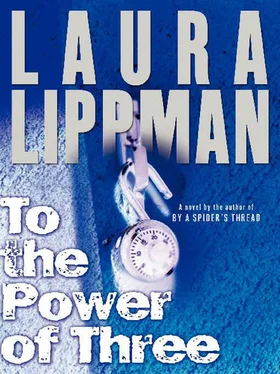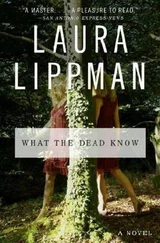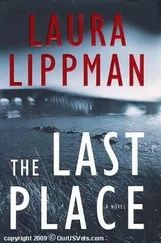Fuck Evan, she thought as she began to prepare that night’s dinner, a Thai recipe modified from the New York Times’ Mini-malist column. Grief counseling mattered. She was going to help the students of Glendale get through this tragedy, making up for the way the school had botched a more ordinary situation a year ago, when three star athletes had been killed in a car crash. Then, still shy about asserting herself, Alexa had hung back and watched as Barbara Paulson did everything wrong, encouraging an atmosphere of hysteria and gossip that only summer’s arrival had stemmed. This time they would get it right, allow students to express their feelings without encouraging their paranoia.
And, when the opportunity arose, she would find a quiet moment to talk to Eve Muhly, see if the girl really did know more than she was telling. It was hard to see how she could-a middling junior such as Eve would have had little contact with outstanding seniors such as Kat and Perri, or even Josie. But there was no doubt in Alexa’s mind that Eve had wanted to confide in her and could feel that way again, given the opportunity.
Out-of-townershave been known to compare the train’seye view of Baltimore to Dresden, circa 1946, but Peter had always loved Amtrak’s approach into the city. For Peter the butt-ugly scenery was charming-the old Goetze’s caramel factory flashing past, then the backyard views of dilapidated rowhouses, the occasional church spire. He began to gather his things when he saw Johns Hopkins Hospital high on its hill, prim as Margaret Dumont in a Marx Brothers movie.
He had been astonished, upon entering NYU four years ago, to find out that Baltimore had a kind of retro cachet. Who needed to know that he was really from the suburbs, and a distant one at that? True, New Yorkers could be a bit patronizing, even when professing admiration for a place; when they cooed about Baltimore ’s charms, they sounded as if they wanted to bend over and pat the city on its collective head. But Baltimore had a disproportionate amount of work for actors, with a movie or television show almost always in production there, and solid Equity theaters. The guy who had won the Tony this year had done Peter Pan at Center Stage less than a year ago. You couldn’t build a career here, not yet, but maybe that would change. His mother would like that. But, for now, he had to go to Toronto, where the dollar was strong and the scenery versatile.
He was actually a little nervous about telling his parents about the job-and about the money he needed, short term, before the paychecks started. That was part of the reason he had decided to do it in a grand way, show up for Sunday dinner with…well, with just himself, as it turned out. Penn Station no longer had a florist, go figure, and there was nothing in the newsstand that would make a suitable gift for his mom. Hey, Mom, here’s a Goldenberg Peanut Chew. No, not even his self-indulgent mother would be impressed by such a lame gesture.
A cab to Glendale was at least forty dollars, which wouldn’t seem like a lot of ducats in a few weeks, but try explaining your prospects to an ATM. Peter decided to take Light Rail to the end of the line, where he could summon a cab for the rest of the journey. Best of both worlds-he could arrive in style and still have some money in his pocket.
The ghost-white train, near empty as usual, wended its way north. Things were so green here, so lush, and the wooded hills buzzed with the roar of seventeen-year cicadas, a phenomenon that hadn’t reached as far north as New York. Peter was never conscious of missing the countryside while in New York, but he was always glad to see it when he returned home. Other kids at NYU seemed to get a kick out of knocking the places they were from, disavowing them, as if that were part of the New York ritual. To be truly cool, you had to reject your hometown. Unless, of course, your hometown was New York, in which case you just spent the first semester sneering at people who had never ridden the subway or eaten soup dumplings in Chinatown.
Short, eager, and a quick study, Peter had seen immediately that he shouldn’t talk about his high-school glory days, that reminiscing about your past accomplishments merely indicated that you didn’t think you had any future ones. Everyone at Tisch had been a star back home. Some already had done professional gigs, usually commercial work. Simone had a line in Good Will Hunting, when she wasn’t even in high school yet. No one needed to hear about Peter’s Tony in West Side Story, his Billy Bigelow in Carousel, or his Biff in the community-playhouse production of Salesman . They were all former Billys, they were all former Biffs-and Romeos and Don Quixotes and Lieutenant Cables.
But they were not, Peter realized, all good-looking. And he was, not that he would ever be the kind of asshole who said such a thing out loud. Instead he pretended not to know, ducking his head sheepishly when girls talked about his long eyelashes and tight curls, the lone dimple in his left cheek. He pretended not to know, and they pretended not to know that he was pretending not to know. But when he finally got his height, it was almost disingenuous to claim he didn’t recognize the effect he had just walking into a room. It was a weird responsibility of sorts, being good-looking.
That was another thing he could never say without being judged a Grade-A asshole. But it happened to be true. Sometimes, when he was with a girl, just at that moment when things were beginning to cross over to the point where something significant was going to happen-not necessarily intercourse, but definitely some sort of satisfaction-he would catch this look on the girl’s face, something wistful and confused. It made him feel bad, as if he had led her astray somehow. Yet it wasn’t his fault that girls projected things on him because he was handsome, because they had seen him onstage and they thought they were making out with Curly or Tony or the Rainmaker, and he was really just Peter Lasko, and he wasn’t going to sing some ballad to them when it was all said and done, wasn’t even going to spend the night if he could help it.
Kat wasn’t like that, he reminded himself. Yeah, but you never got with Kat, the no-bullshit part of his brain chimed in. Never got below the waist at all.
Well, Christ, she was only fifteen. For all he knew, even the lightweight stuff they had done that summer was illegal. Her father had certainly tried to suggest as much in that scary little heart-to-heart that Mr. Hartigan had claimed was all about his interest in Peter’s future. He had faked being buddy-buddy, but Peter had never doubted that the guy would have come at him if he hadn’t gotten his way.
The Light Rail slid into the Hunt Valley station. It was only seven, the sun still bright and high above the ridged countryside to the west. His family sat down to supper early on Sundays, and his mother had never gotten out of the habit of putting on a huge spread, even after Peter left home. It was great when he was in a production, especially something where he was moving a lot, and he could come home from a Sunday matinee, fall facefirst into his mom’s food. Some Glendale kids had been weird about his mom’s being Cuban-and the fact that she was a green-eyed blonde, one of the hot moms, really messed with their minds. But once they came over and had arroz con pollo, or frijoles negros, not to mention plantains, they wanted to join the family. His dad had met her in Miami, while visiting Peter’s great-grandparents, and she didn’t have an accent or anything. But that Sandoval name had its advantages, especially when he was applying to colleges. He always assumed that lucky little biographical detail had pretty much cinched NYU for him.
Читать дальше












